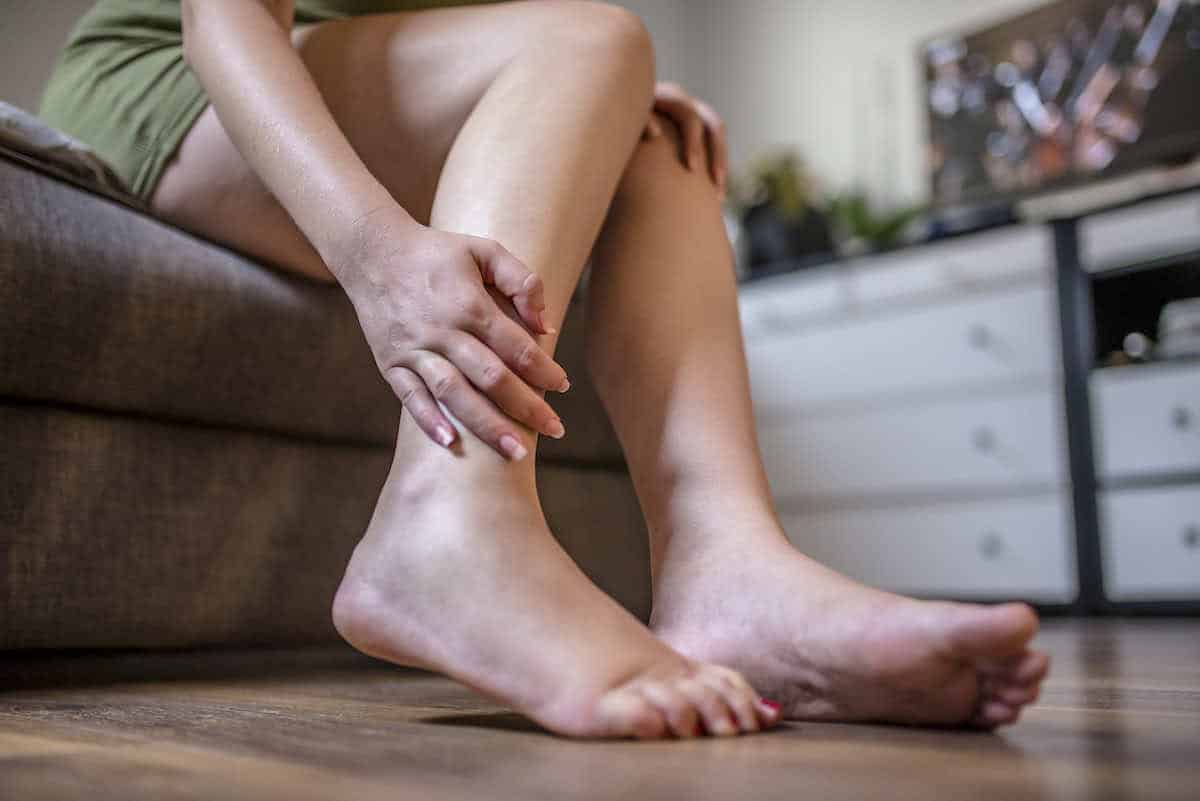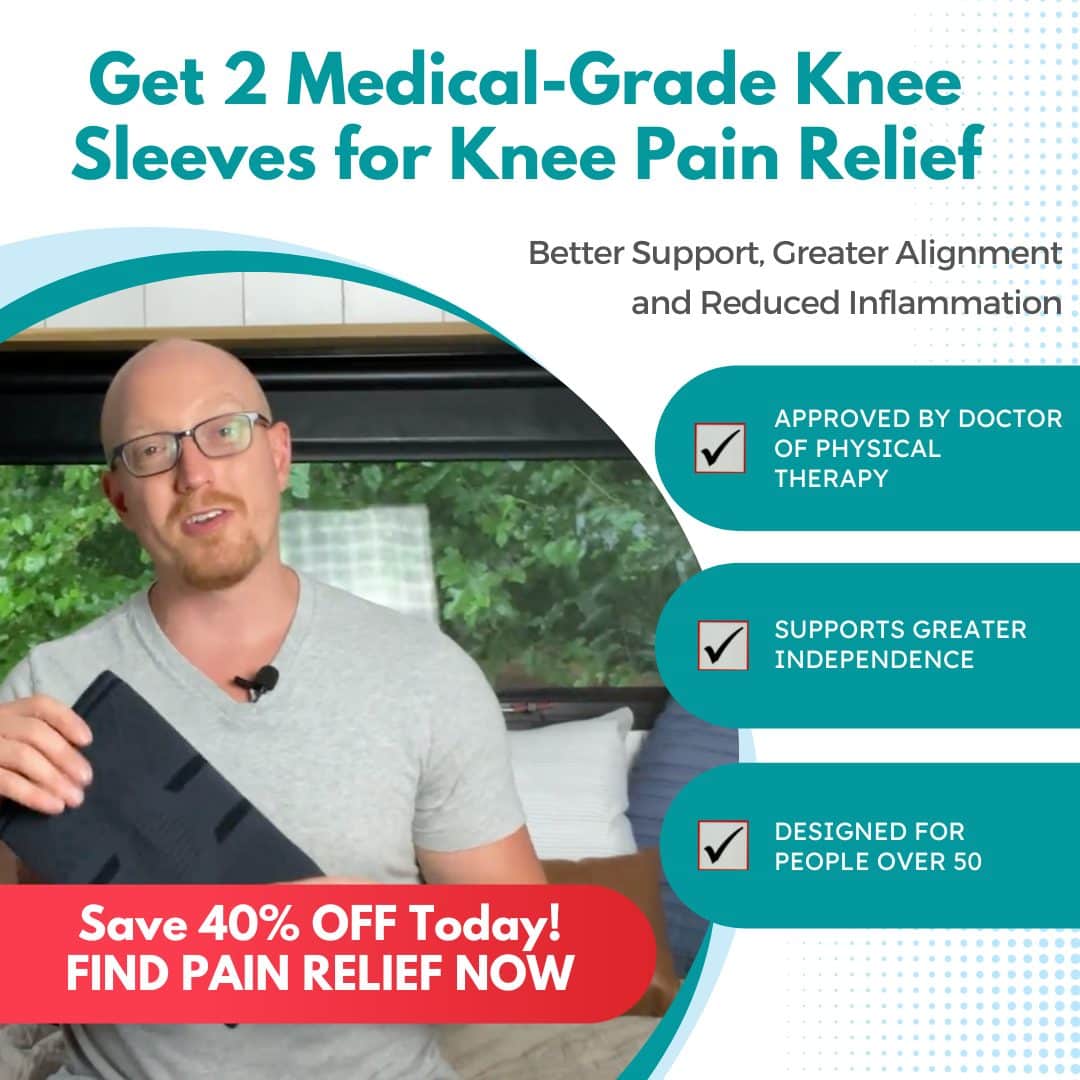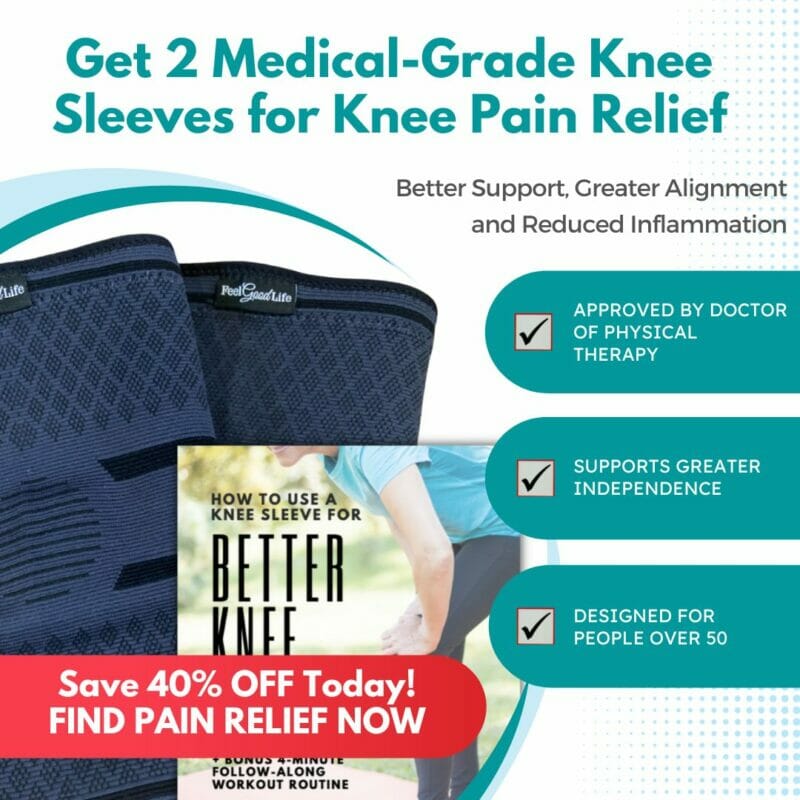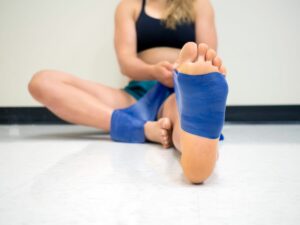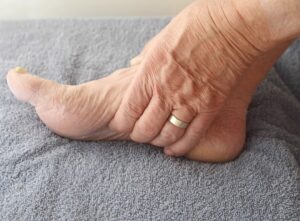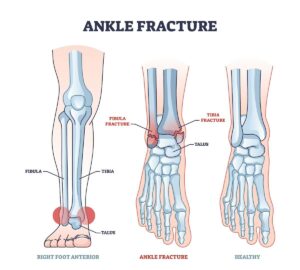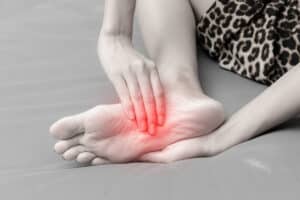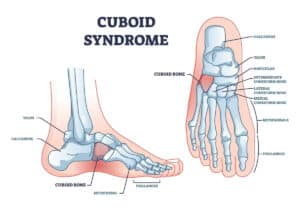Free download: Top 10 Natural & Easy Remedies for Joint Pain from Home. Learn these helpful remedies.
Estimated Reading Time: 6 minutes read
Ankle mobility is all about how well your ankle can move. Think of it like a door. Some doors swing open wide and smoothly without any squeaks, while others only move a little and are stiff. Similarly, your ankle has its own “swing” range, and that’s what we call its mobility.
This flexibility isn’t just due to the ankle bone and joint. The muscles, tendons, and ligaments wrapped around the ankle play a big role too. They’re like the team behind the scenes, making sure the door (or, in this case, your ankle) moves just right. When they work well together, you get a smooth, wide range of motion. When they don’t, moving can become a bit harder.
Table of Contents
Why Ankle Mobility Matters
Ankles are like the base or foundation of a building but for your body. They hold us up and help us move, whether we’re just standing, taking a walk, running a race, or jumping up high. If our ankles move well, we have better balance and fewer chances of getting hurt. Plus, we can do physical activities even better!
Good ankle movement isn’t just about the ankles. It helps our whole body have the right posture and move the right way. This means parts like our knees and hips are happy and don’t feel extra strain. In simple terms, when our ankles are moving right, our whole body feels and works better!
And the good news? You can help your ankles move even better. Below, you’ll find some of the best exercises to boost your ankle mobility. Let’s dive in and give those ankles the attention they deserve!
General Movements to Boost Ankle Range of Motion
1. Ankle Pumps
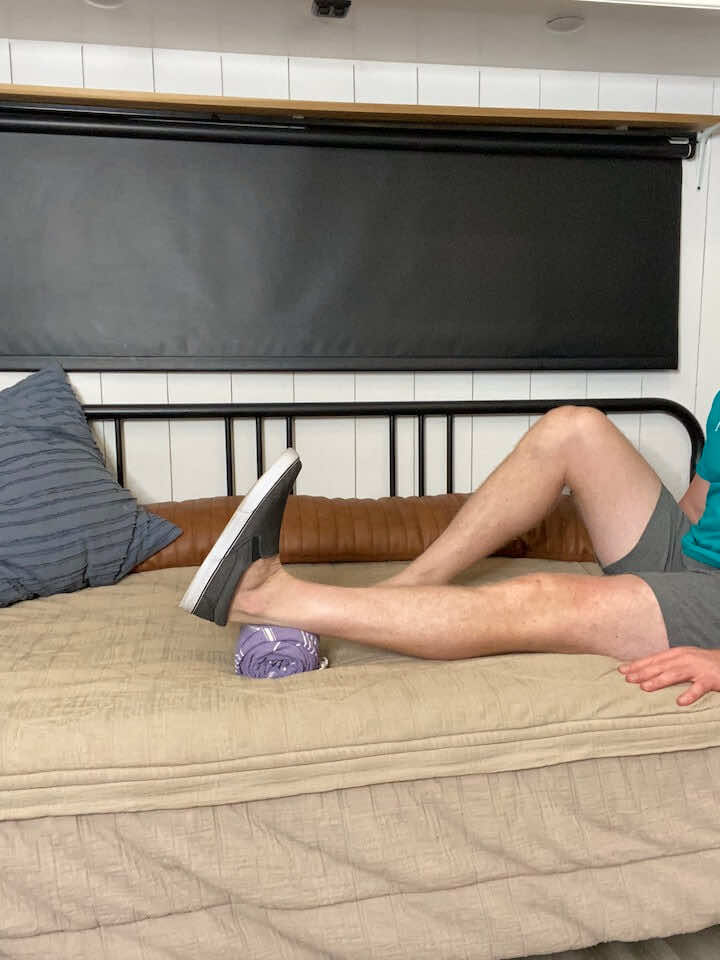
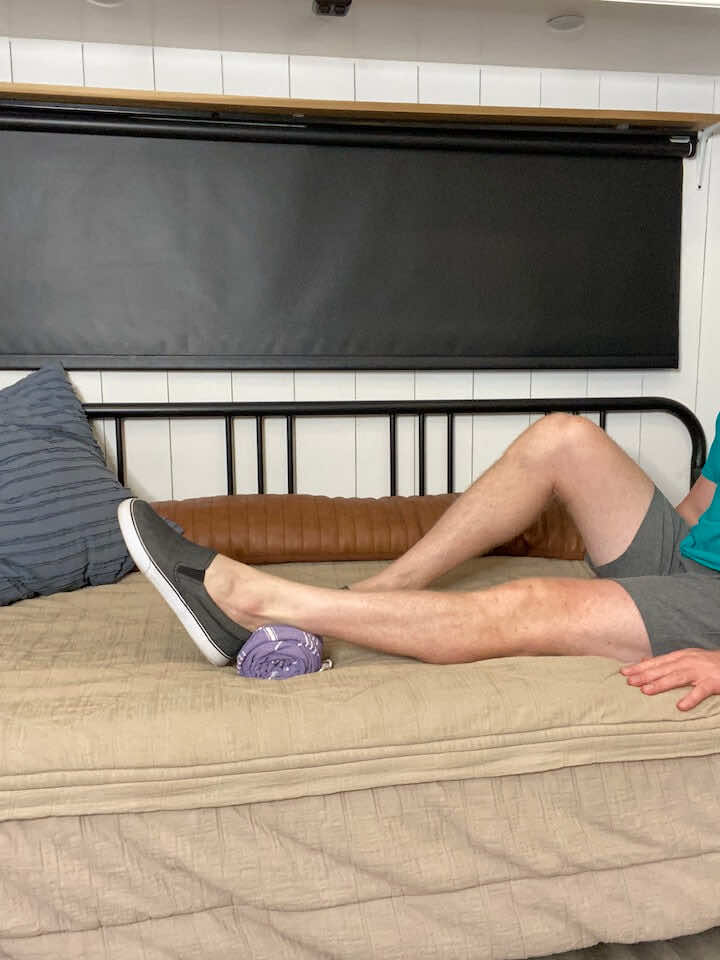
- While sitting on your bed with the injured leg straight, roll a small towel just under your calf muscle.
- Start the movement by pointing your toe forward and then pulling it back toward your nose.
- Cycle between these two positions for 10 reps and 3 sets.
2. Ankle Alphabet
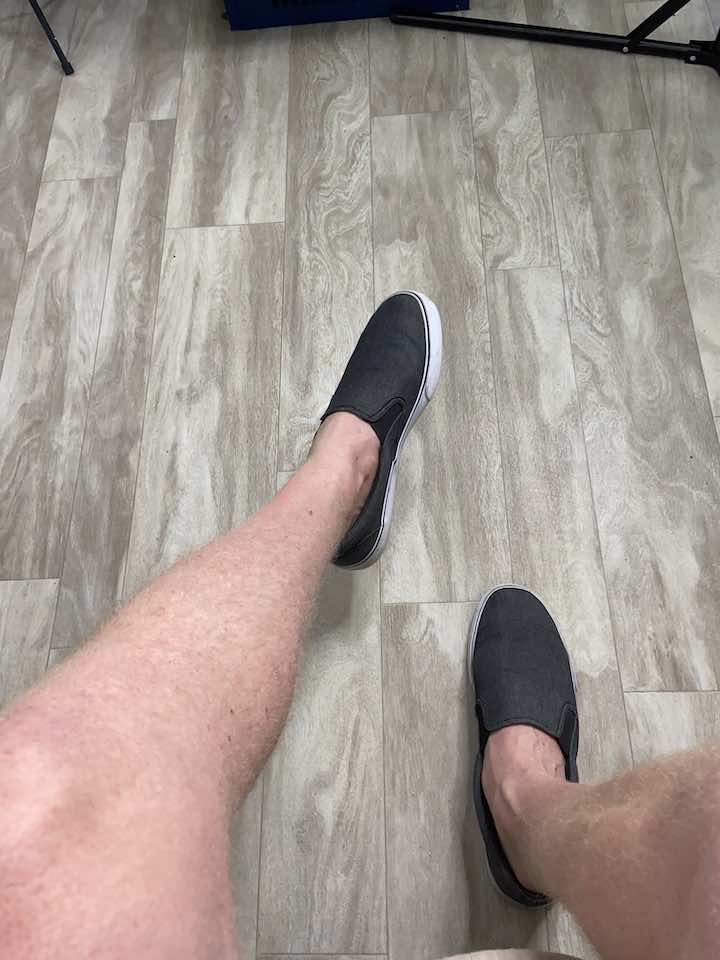
- Start by sitting in a chair or laying in bed with your ankle over the edge to allow for full ankle movement.
- Write out each letter of the alphabet with just your ankle as though your big toe is a pencil.
Effective Ankle Stretches
1. Soleus Calf Stretch
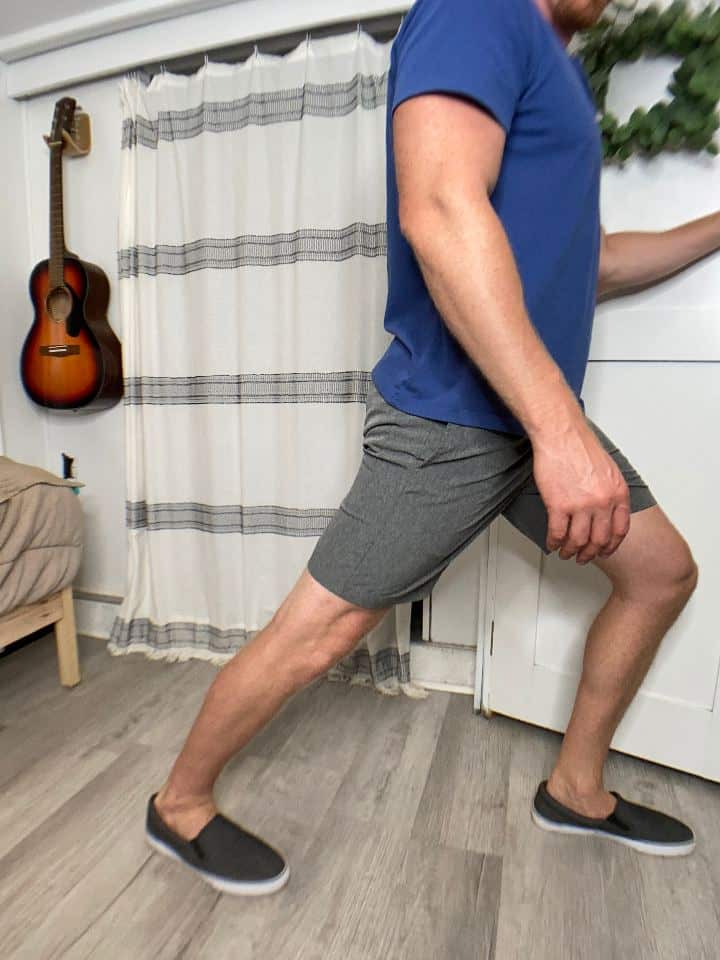
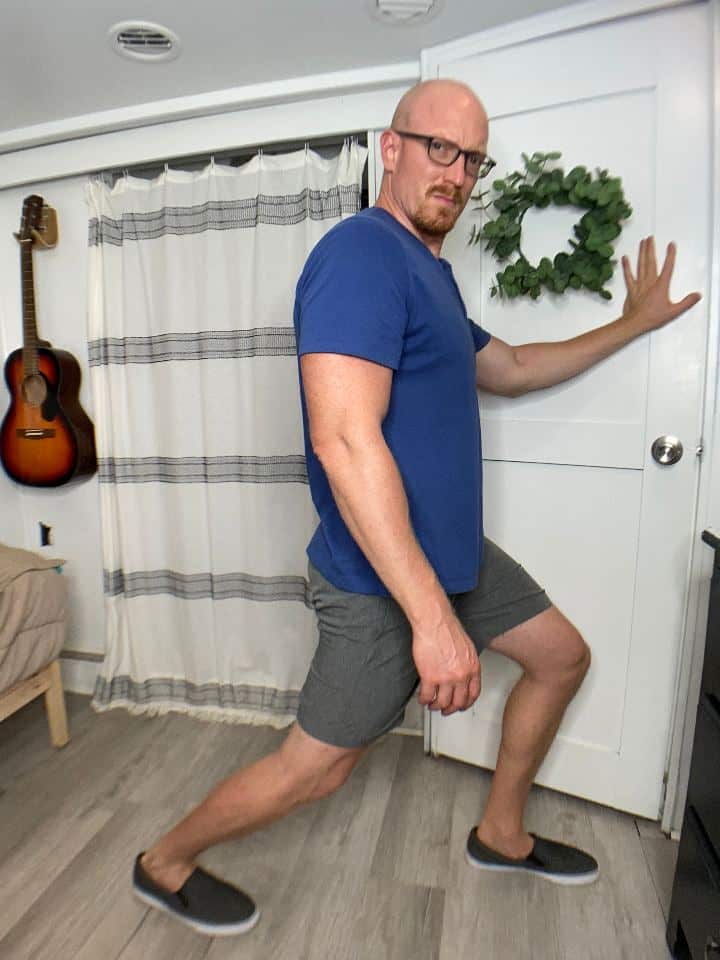
This stretches another muscle in your calf and is very similar to the gastrocnemius stretch.
- Position yourself just like you did for the gastrocnemius stretch in a small lunge.
- This time though, allow the back knee to slightly bend. Make sure to still keep both heels flat on the floor. You might feel this one a little more towards the Achilles tendon and heel.
- Hold 30-60 seconds. Repeat twice on both legs.
2. Gastrocnemius Calf Stretch
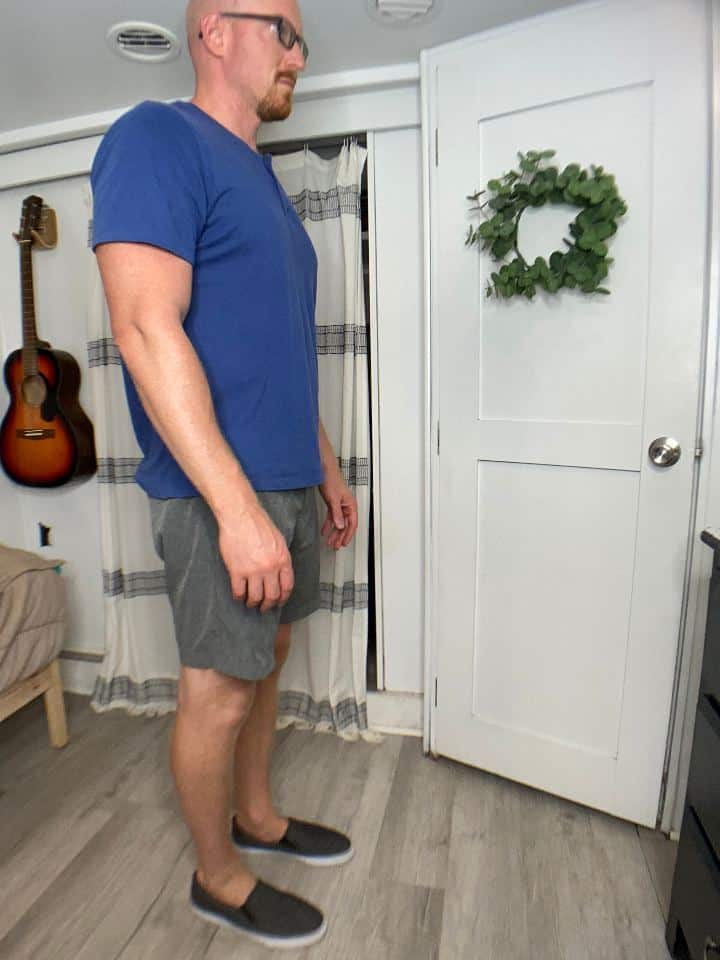
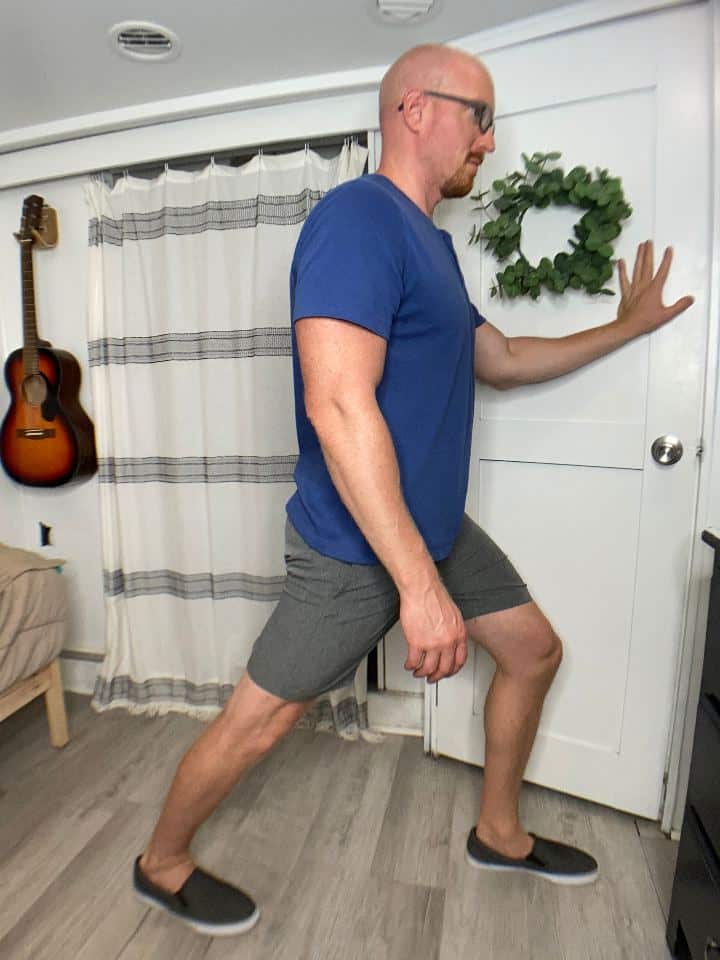
- Stand facing a supportive surface, such as a wall, with feet together.
- Step forward with a non-painful leg and keep the affected foot behind.
- Bend both knees slightly.
- Hold the stretch for at least 30 seconds.
- Repeat the stretch on the other leg.
- Do 3 sets of the stretch on both legs.
- Keep the back knee slightly bent during the stretch for a more direct stretch on the Achilles tendon.
Passive Range of Motion Stretches
These stretches involve holding the ankle at its end range of motion, where you feel a stretch but no pain.
1. Ankle Dorsiflexion
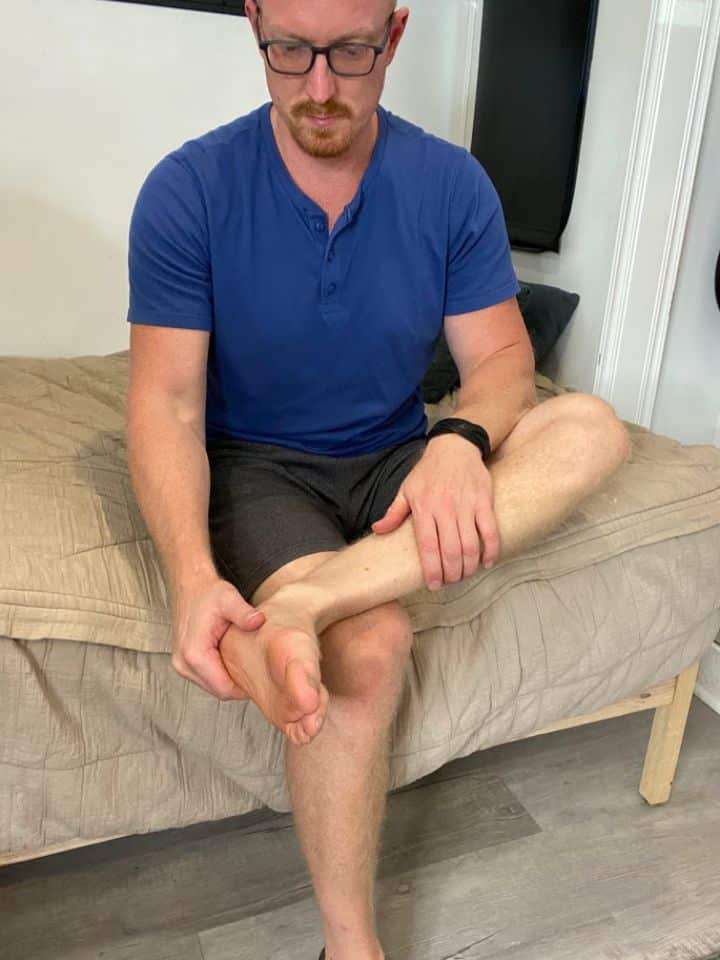
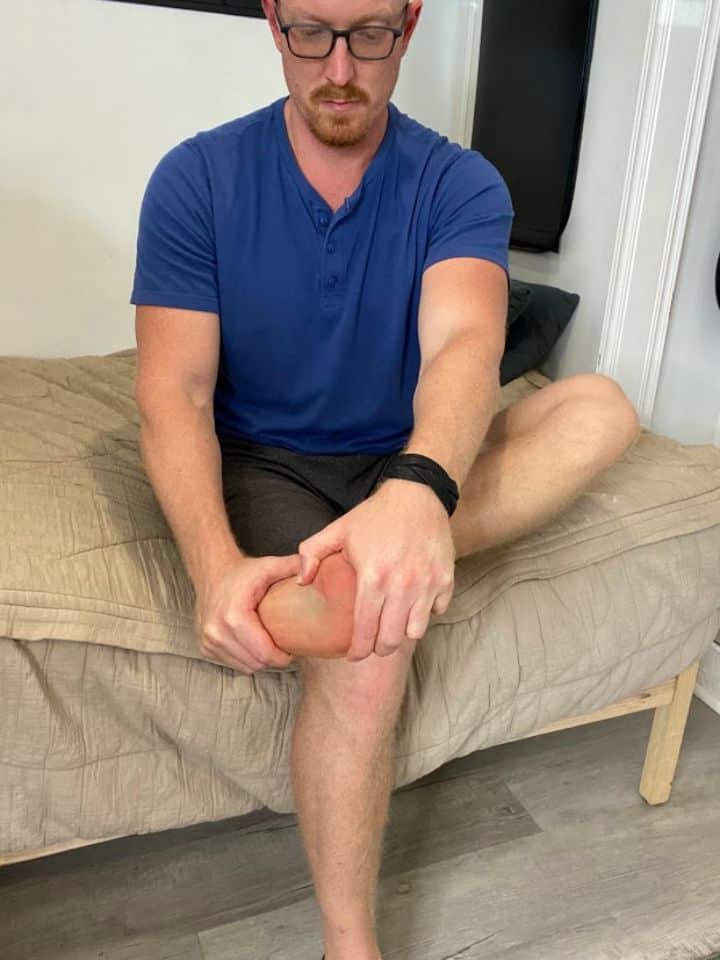
- Place one hand on the bottom of the foot, positioned over the ball of foot.
- Gently, pull the foot back into dorsiflexion until a gentle stretch is felt on the back side of the heel and ankle.
- If the stretch is very intense at first, try holding for 5 seconds, then rest. Repeat 10x.
- If the stretch is only mild, then try a longer hold time anywhere from 30-60 seconds.
2. Ankle Plantarflexion
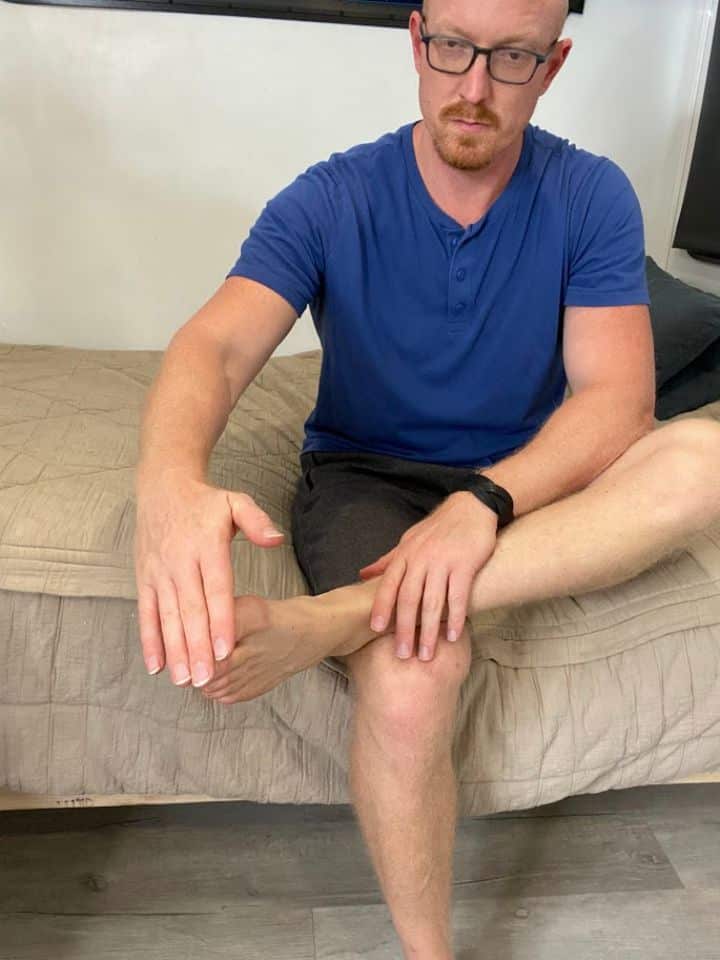
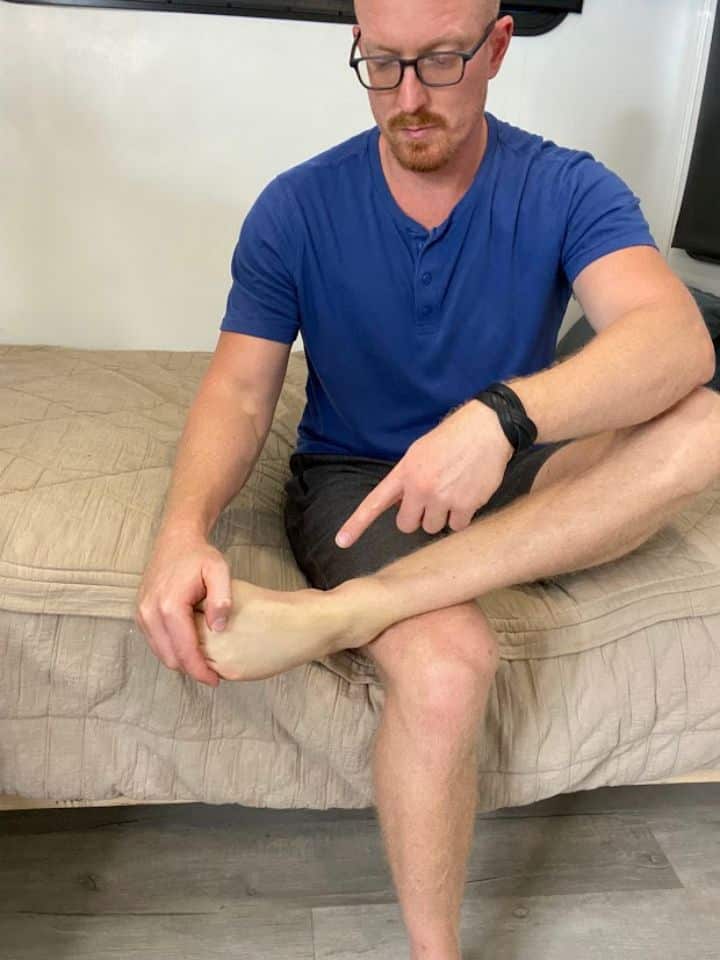
- Place one hand on the top of the foot, positioned on the forefoot near the toes.
- Gently, pull the foot down into plantar flexion until a gentle stretch is felt on the front side of the foot and ankle.
- If the stretch is very intense at first, try holding for 5 seconds, then rest. Repeat 10x.
- If the stretch is only mild, then try a longer hold time anywhere from 30-60 seconds.
3. Ankle Inversion
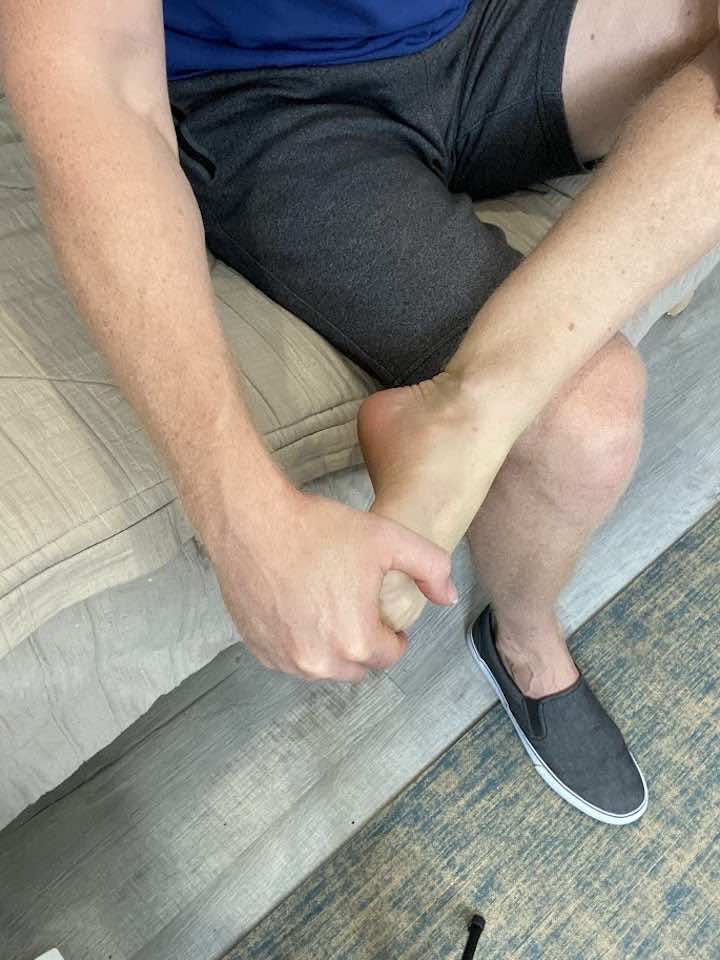
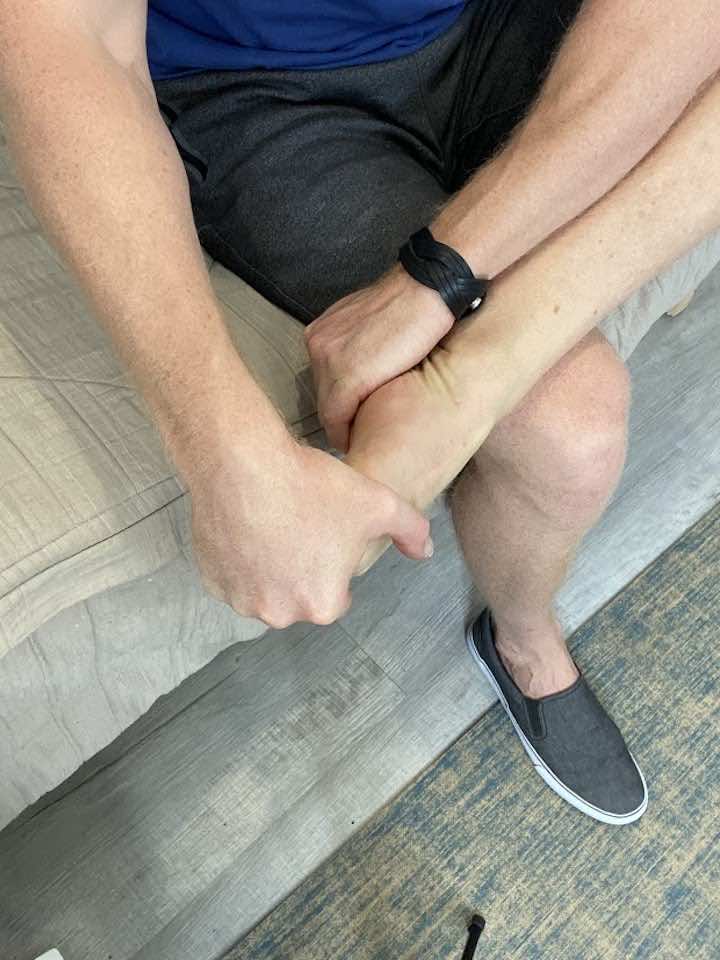
- Place one hand on the top of the foot, positioned on the forefoot near the toes.
- Gently pull the foot and ankle into a plantar flexion stretch, then pull slightly inward to pull the foot towards you.
- If the stretch is very intense at first, try holding for 5 seconds, then rest. Repeat 10x.
- If the stretch is mild, try a longer hold time, anywhere from 30-60 seconds.
- Repeat this exercise two more times for a total of three repetitions.
4. Ankle Eversion
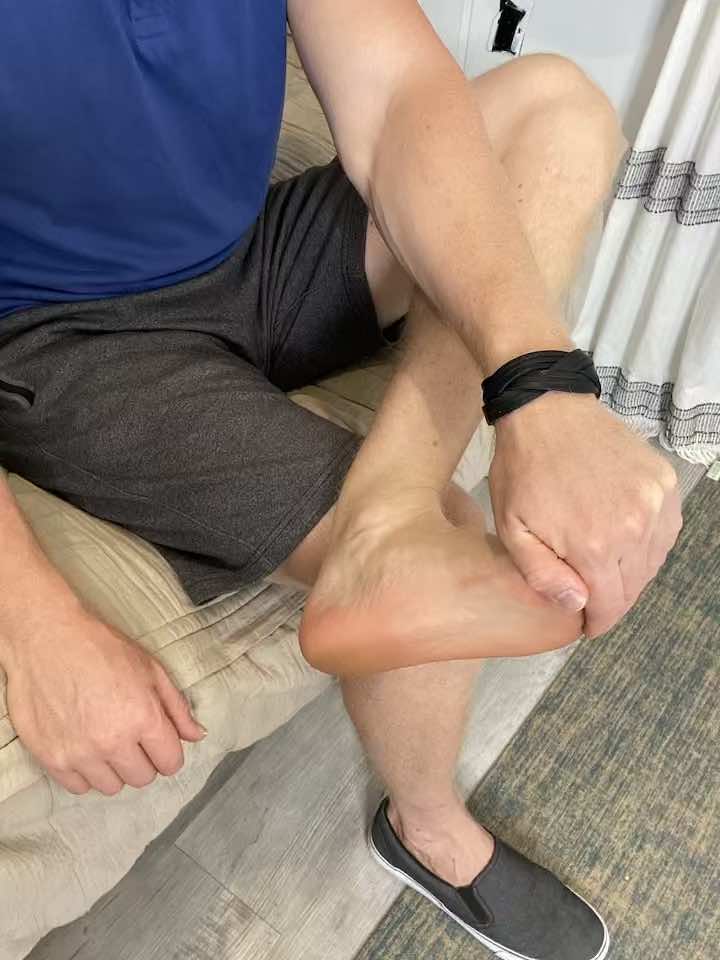
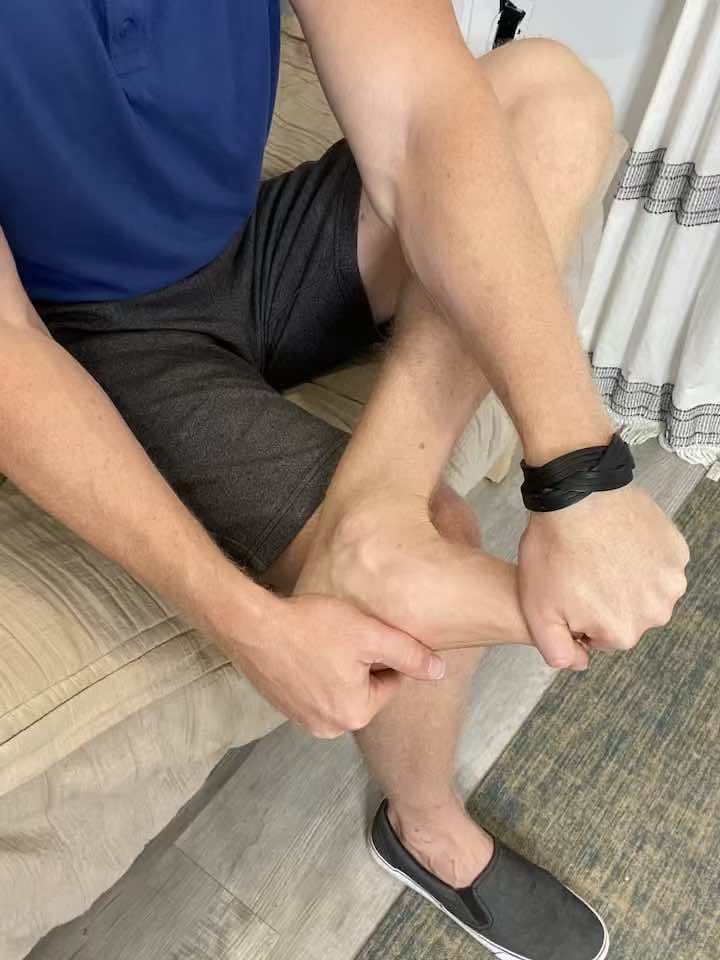
- Place one hand on the bottom of the foot, over the ball of the foot.
- Gently pull the foot and ankle back into dorsiflexion, then pull slightly outward, so the foot moves away from you.
- If the stretch is very intense at first, try holding for 5 seconds, then rest. Repeat 10x.
- If the stretch is mild, try a longer hold time, anywhere from 30-60 seconds.
- Repeat this exercise two more times for a total of three repetitions.
Enhancing Ankle Mobility
1. Ankle Joint Mobilization with Resistance Band
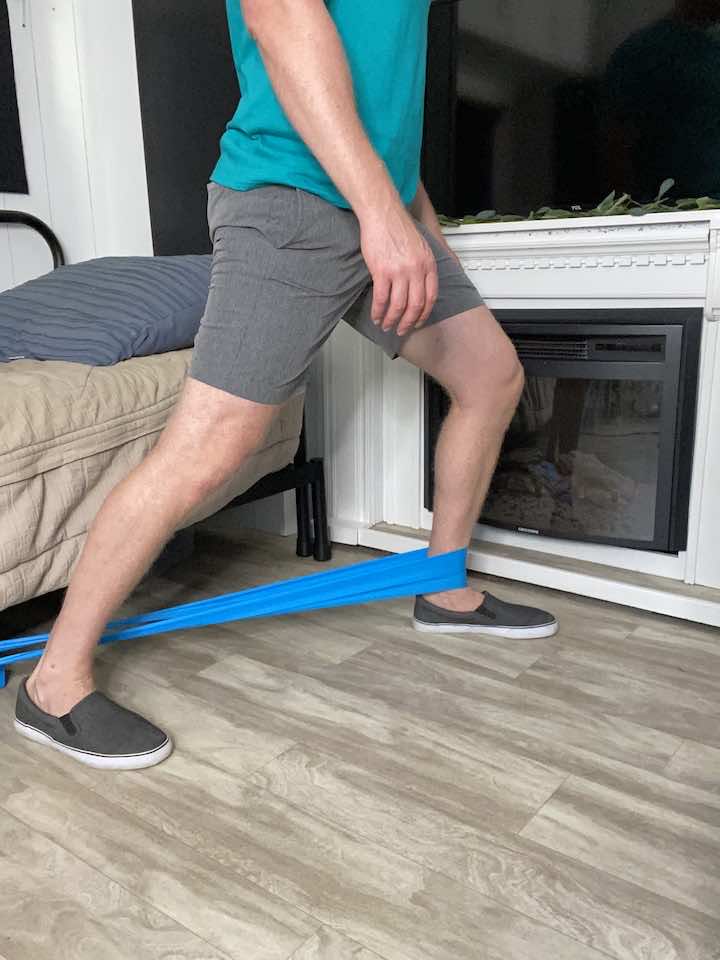
- Place a resistance band loop around a sturdy table or chair leg (one that is heavy and won’t move!)
- Place the other side of the loop around your painful ankle right at the joint and stand facing away from the sturdy chair or table.
- Take a step so there is tension on the resistance band.
- Using a lunging motion (with the painful ankle as the front leg), bend your knee forward while keeping your ankle flat on the ground. Move till you feel the tension and hold for two seconds.
- Repeat 10 times.
In Conclusion
Your ankles play a big part in every step you take. Keeping them in good shape is important for easy movement and balance. The exercises I talked about are a great way to keep them flexible and strong. But, just like any new activity or if you’ve had ankle problems before, it’s smart to have a chat with a doctor or therapist first. They can give advice tailored just for you.
By focusing a little time on our ankle health, we set ourselves up for more comfortable walks, fun dances, and any other moves we want to make. So, for every hop, skip, and jump in your future, give your ankles the care they deserve.


